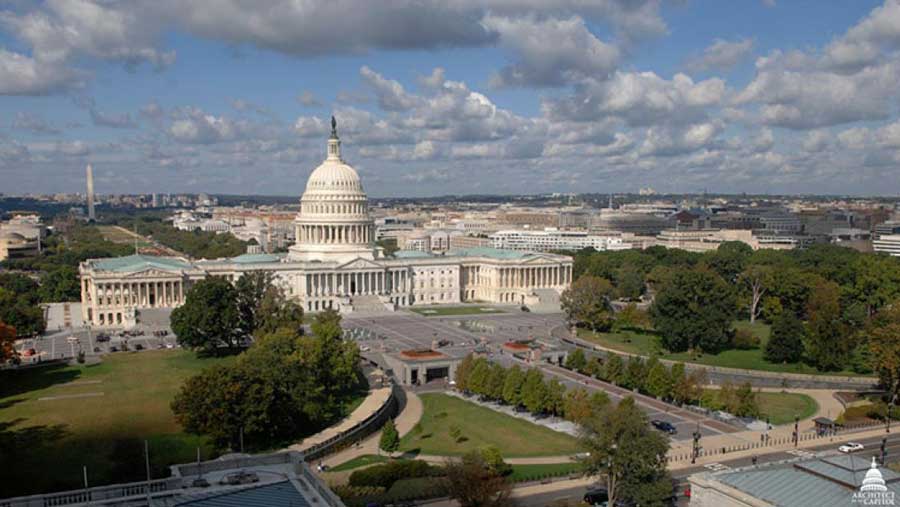House Antitrust Tackles Network Neutrality

The smarter way to stay on top of broadcasting and cable industry. Sign up below
You are now subscribed
Your newsletter sign-up was successful
The House Antitrust Subcommittee took a whack at the FCC's net neutrality rules Wednesday (Nov. 1), specifically the role of antitrust law in governing broadband access provider conduct.
That came as FCC Chairman Ajit Pai is expected to circulate an order rolling back Title II classification of ISPs as early as later this month. It also came at about the same time that the FCC Democrats went to Capitol Hill to push back on that Pai proposal.
Witnesses for the hearing included acting Federal Trade Commission Chair Maureen Ohlhausen, FTC commissioner Terrell McSweeny, former FCC commissioner Robert McDowell and Michael Romano, SVP of NTCA: The Rural Broadband Association.
Ohlhausen said that a decade ago the FTC cautioned against internet regulation, and that the current marketplace is even more competitive, strengthening that argument. She said antitrust enforcement can protect net neutrality, "if that is what consumers want."
She pointed out that advocates for regulation frequently argue that consumers value the equal treatment of data by ISPs.
If so, "then any ISP that systematically degrades applications and content that its subs demand will certainly face a backlash," she said.
But she said consumers may want and benefit from some non-neutral practices like bundles of streaming services or prioritizing telehealth.
She said case-by-case antitrust enforcement focused on competitive harm allows ISPs and content providers to experiment in ways that benefit consumers while guarding against arrangements that foreclose access to edge providers.
She said that if ISPs promise to adhere to net neutrality principles, the FTC can enforce it. She said the FTC has the tools to protect competition online. She said companies are also required to disclose practices like blocking or throttling if not to do so would mislead the consumer.
McSweeny said it is wrong to think that relying on backward-looking consumer protection or antitrust enforcement can provide the same protections as the FCC's Open Internet's forward-looking rules. Those included a general conduct standard to get at ISP practices not yet identified that could harm consumers or edge providers.
She said that the FTC lacks the FCC's specialized knowledge on data discrimination and other relevant areas. She also argued that while antitrust rules are meant to protect competition, broadband markets are highly concentration, which means they lack the pressure to limit discriminatory conduct.
While Romano said NTCA supported a Title II approach targeted at the underlying network, rather than retail broadband,
that is not what the FCC adopted in 2015. "NTCA believes that the retail broadband marketplace is hindered, rather than helped, by burdensome communications-style regulations that favor certain segments or otherwise frustrate the market's ability to develop and deploy innovative offerings for consumers."
Rep. John Conyers (D-Mich.) agreed with McSweeny that antitrust was an insufficient tool to insure network neutrality, and said the FCC should leave the Title II-based Open Internet order in place.
Rep. Bob Goodlatte (R-Va.), chairman of the full Judiciary Committee, was all for reversing the "regulatory intervention" of Title II classification. He said the rules imposed heavy burdens and constituted government meddling in a market that was already vibrant and competitive.
Ranking member David Ciccilline (D-R.I.) called it a myth that consumers could detect blocking and throttling.
Ohlhausen countered that edge providers had a vested interest in making sure content was not blocked or throttled, and that rather than monitoring falling to consumers, it was the province of some of the most powerful and well-funded companies in the U.S.
McDowell, a strong proponent of reclassfiying to Title II, said: "We need to roll back ex ante, 'mother may I?' regulations."
The smarter way to stay on top of broadcasting and cable industry. Sign up below
Contributing editor John Eggerton has been an editor and/or writer on media regulation, legislation and policy for over four decades, including covering the FCC, FTC, Congress, the major media trade associations, and the federal courts. In addition to Multichannel News and Broadcasting + Cable, his work has appeared in Radio World, TV Technology, TV Fax, This Week in Consumer Electronics, Variety and the Encyclopedia Britannica.

